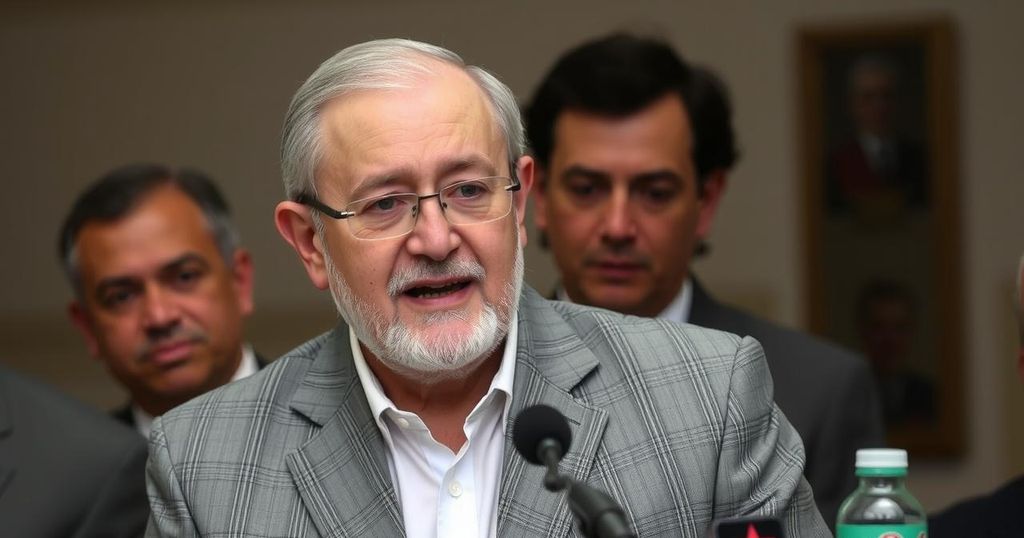Syria’s Elections Could Take Up to Four Years, Says Interim Leader Al-Sharaa

Syrian elections, according to de facto leader Ahmad al-Sharaa, may take up to four years to organize. Al-Sharaa stresses the need for infrastructure preparation and a new constitution, which could take additional years to draft. He aims to transition from the Islamist HTS to a legitimate governing body while navigating complex international relations and seeking regional cooperation.
Elections in Syria may take as much as four years to organize, according to Ahmad al-Sharaa, the newly appointed leader of the interim government who leads the Islamist group Hayat Tahrir Al-Sham (HTS). His comments are significant as they follow the recent overthrow of the Assad regime. Al-Sharaa emphasized the necessity for infrastructural preparations prior to conducting elections, stating, “We have to prepare the infrastructure before heading to elections,” thus illustrating the challenges ahead.
Furthermore, Al-Sharaa alluded to the drafting of a new constitution, an undertaking he speculated could take up to three years, saying, “The constitution must regulate society so that the previous experience does not repeat itself.” The leader highlighted the urgent need for reconstruction, referencing the extensive damage inflicted by more than half a century of autocratic rule. He noted, “We are now in the re-foundation of the country and not just managing the country.”
Al-Sharaa announced that HTS will be dissolved at the forthcoming National Dialogue Conference, aimed at facilitating the transitional phase, although the date for this conference remains undecided. He also discussed the complicated relationship with Russia, urging for a respectful coexistence, especially amidst ongoing troop withdrawals following the toppling of Assad.
In the realm of international relations, a Ukrainian delegation recently visited Damascus, marking ongoing diplomatic engagements with various nations as Al-Sharaa seeks recognition on the global stage. Notably, a high-level U.S. delegation informed him that the US would lift the bounty placed on him, with discussions focusing on cooperation against terrorism.
Al-Sharaa’s approach to leadership has shifted from militant to statesman, having transitioned from jihadist attire to formal suits during international engagements. He has expressed hopes for Saudi Arabia to play a significant role in Syria’s future and advised Iran to reconsider its interventions in regional affairs, indicating a strategic reorientation under the new leadership.
The Syrian political landscape is undergoing a significant transformation following the overthrow of Bashar al-Assad’s regime by the Hayat Tahrir Al-Sham (HTS) group. Ahmad al-Sharaa, who now leads the interim government, aims to stabilize the country and prepare for eventual elections, while reconstructing the state infrastructure and drafting a new constitution. The interim government seeks to distance itself from past jihadist affiliations and gain international legitimacy, navigating complex relationships with both regional and global powers.
In conclusion, the future of Syria remains precarious, with plans for elections extending potentially over four years. Ahmad al-Sharaa’s leadership marks a new chapter, emphasizing the need for reconstruction and new governance frameworks. His commitment to international engagement is evident as he seeks legitimacy while balancing the interests of various stakeholders, including Russia and regional powers like Saudi Arabia.
Original Source: www.cnn.com






